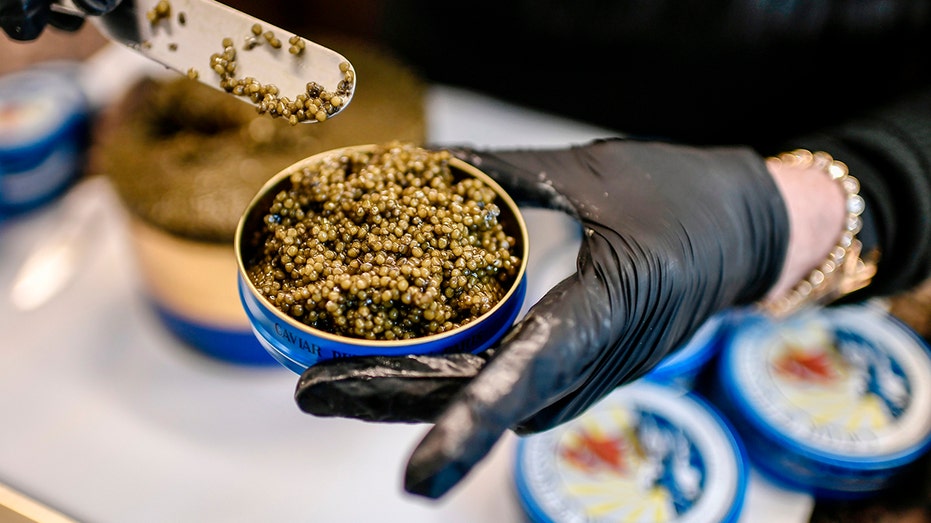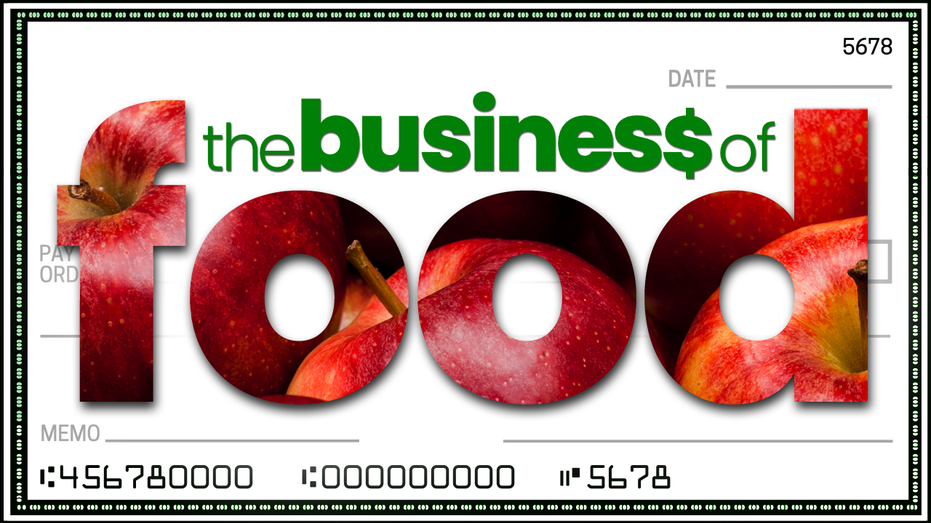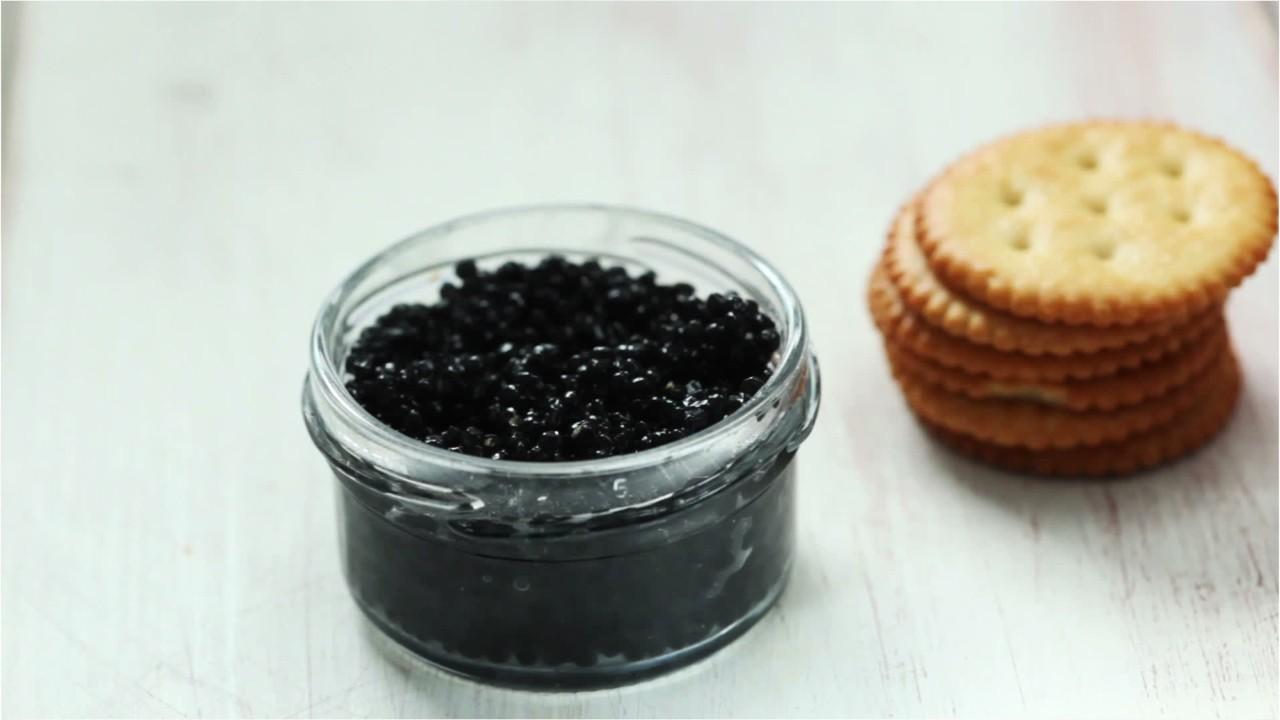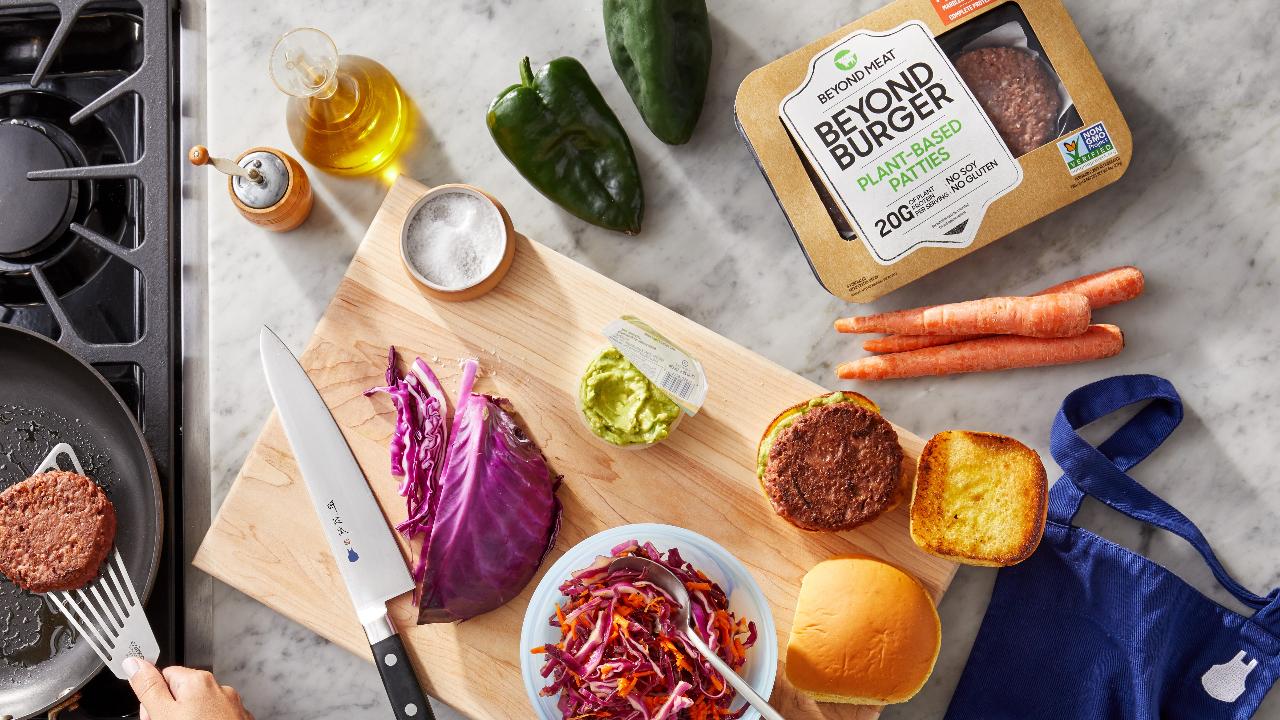Caviar goes mainstream with prices at record low
China, one of the largest caviar producers in the world, is driving prices down
Caviar is becoming a more accessibly priced party snack.
The cost of the haute delicacy served on a spoon or sprinkled atop hors d’oeuvres is plummeting with a surplus of the once-rare fish eggs being harvested in China, one of the world’s largest producers. And chefs are adding more of the indulgent food to menus because of it.

Caviar prices are plummeting with a surplus of the once-rare fish eggs being harvested in China. (STEPHANE DE SAKUTIN/AFP via Getty Images)
Wholesale prices for caviar in the U.S. have dropped by more than 50 percent since 2012 from $850,000 per ton to $350,000 per ton last year, according to the Food and Agriculture Organization of the United Nations. And more Americans are consuming it. U.S. imports of caviar, caviar substitutes and other prepared fish surged nearly 6 percent from $1.45 billion to $1.53 billion through the first 10 months of 2019 compared to the same period in 2018, according to WorldCity analysis of the latest U.S. Census Bureau data. Now, consumers can expect to buy 1 ounce of caviar for less than $100, chefs suggest.
Robert Sisca, a chef and partner at Bistro du Midi, a French restaurant in Boston's Back Bay neighborhood, added a caviar service to his menu this year after noticing a steep decline in prices.
"Caviar prices are down significantly," Sisca told FOX Business. "I have been working with caviar for about 15 years and this is the most economical pricing I've seen."
Sisca serves white sturgeon caviar for $69 an ounce (typically priced between $100 and $125) and Osetra caviar for $99 (typically priced at $150). It's sourced from Marshallberg Farm in North Carolina and served with accompaniments like egg whites, egg yolks, red onion, capers, blinis and crème Fraiche.
"We created this option because pricing is more approachable and more mainstream," Sisca explained.
Caviar, unfertilized eggs that are harvested from the sturgeon family of fish and salt cured, is often consumed as a garnish or spread. There are three species of sturgeon: beluga, osetra and sevruga, however beluga is considered the most high end because it’s the rarest.
Sustainable, farm-raised California white sturgeon caviar is the star of Sterling Caviar Kilo Club, a members-only, subscription-based caviar service. Members pay $1,710 for the year and get four, 250-gram shipments (which serves six to 10 people) of caviar throughout the year.
FOOD AND DRINK INNOVATIONS FOR 2020
The tiny black pearls served on a mother-of-pearl spoon (chefs don't suggest serving caviar on a metal spoon because it can negatively impact flavor) often alongside oysters and Champagne, have been elevating more casual comfort foods with an added taste of luxury. At The Riddler, a Champagne bar with locations in New York City and San Francisco, Kaluga Caviar is served with crème fraiche and Lays potato chips ($78). And a Hackleback caviar-topped taco is $15 at Rose. Rabbit. Lie., the restaurant at the Cosmopolitan hotel in Las Vegas. One with Russian Osetra caviar, a more expensive variety, is $78. And in 2014, a now-shuttered Manhattan burger restaurant Beer & Buns made headlines for serving up a $250 burger topped with beluga caviar and foie gras.
Many companies have turned to more sustainable harvesting methods over the years that are more humane than commercial caviar production methods of catching a fish, cutting out its eggs and throwing it back in the ocean to die. The no-kill or “cruelty-free caviar” technique of massaging ripe eggs from a female sturgeon has been an alternative to commercial caviar production in recent years.
"Back when I started, all good caviar was wild caviar," Sisca said. "Now, all caviar is farm-raised and it is really good. You cant even buy wild caviar anymore due to regulations, so it is all farm-raised and many domestic farms have really stepped up their game."

The Business of Food explores the rapidly changing $1.5 trillion food industry every Tuesday on FOX Business.





















